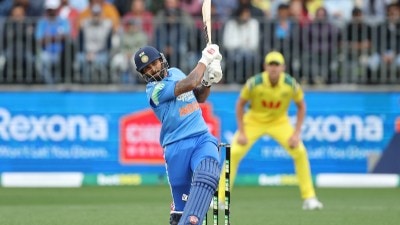Minister for Hajipur
Actually, Ram Vilas Paswan has confirmed what everybody has suspected all along. His threat to resign from the Union Cabinet if the zonal ...

Actually, Ram Vilas Paswan has confirmed what everybody has suspected all along. His threat to resign from the Union Cabinet if the zonal headquarters of East Central Railways at his home constituency was shifted or closed down is more evidence, if more was needed, that the Union Communications minister8217;s political agenda is a very limited one: it encompasses his home state at best and only his constituency in fact. It may be recalled that throughout his tenure as Railway minister in the Gowda government earlier, Paswan had mainly preoccupied himself with shoring up his hold on his constituency. From doling out passes for free/concessional travel to supporters to anointing his home turf Hajipur as the headquarters of the newly created East Central Railway, he used his cabinet berth with a very specific aim in mind. He was looking after the interests of his voters in Bihar.
It may be unfair, though, to hold only Paswan to account for acting as the regional satrap on the national stage. The failure to rise above sectional interests, the unwillingness to find the linkages between local concerns and national issues, is not his alone. It is no secret that the present Railway Minister Mamata Banerjee also determinedly lobbied for the portfolio with her sights set firmly on her home state and that her tenure so far has been most remarkable for her efforts to smoothen the delivery of the so-called West Bengal package. For Banerjee, Rail Bhavan in New Delhi is a temporary stopover on the way to Writer8217;s Building in Calcutta; West Bengal8217;s chief minister-in-the-making is merely biding her time at the Centre until the desired change of guard can take place back home. In fact, the refusal of both Paswan and Banerjee to look beyond their vote base is part of a larger story. Over the past decade or so, even as more and more regional and caste-based parties have gained a foothold on thenational political stage, their leaders have obstinately held on to their local programmes. While this did bring about a new sensitisation of the Centre to the regional/sectional demand, it now seems to be causing the fragmentation of the national programme into parts that refuse to come together as a whole. Paswan8217;s threatened resignation from the Union Cabinet is only a pointer to a deeper problem.
In recent times, Paswan has been making another threat as well, one that carries another message. He has all but announced the formation of a new party; the Janata Dal is set to split once again. Reportedly, Paswan8217;s decision to break away has to do with his inability to see eye to eye with JDU leader Sharad Yadav. But whatever the provocation, he will only midwive a split foretold. Down the years, the Janata Dal has amoeba-like preyed upon itself, splitting repeatedly into ever smaller splinters of itself. No tears are likely to be shed as what is left of the once promising centrist outfit is depleted further at the altar of bickering egos.
- 01
- 02
- 03
- 04
- 05































